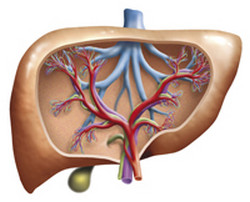Non-alcoholic steatohepatitis
Fat deposition in the liver mainly due to obesity causes NASH that resembles alcoholic liver disease. In its most severe form, NASH can lead to liver failure and is a serious cause of liver-associated mortality. The scope of the EU-funded 'Fatty liver: inhibition of progression' (FLIP)(opens in new window) project was to understand and prevent the progression of NASH. The consortium brought together leading scientists in the field and clinical hepatologists to study the underlying mechanisms of NASH development and improve patient management. Among the biggest achievements of the project was the establishment of the largest European database of NASH patients. This includes clinical and epidemiological data as well as biobanks of patient samples. Analysis of this information enabled project partners to identify novel epidemiological and genetic determinants for NASH, both in adults and adolescents. The FLIP consortium performed the largest genetic studies in patients with histologically characterised NASH and identified robust genetic predictors of disease severity. From a clinical perspective, the FLIP study generated a standardised histological classification that pathologists across Europe can use for diagnosis and staging of NASH. Through the discovery of new serum markers and non-invasive imaging tools, it hopes to improve disease diagnosis and prognosis. To elucidate the events that drive the onset and progression of NASH, researchers developed a number of new animal models and in vitro culture systems. They unravelled various metabolic, inflammatory and fibrotic factors central for NASH initiation that could also serve as pharmacological targets. Importantly, the FLIP study laid the foundations for future research in Europe in NASH through the establishment of a European Collaborative Research Network on NASH. Educating the public on the consequences of an unhealthy lifestyle and poor nutritional choices on the health of the liver should help reverse this devastating trend. Work on validation of pharmacological targets in NASH should help design effective drug therapy for the most severe patients.







